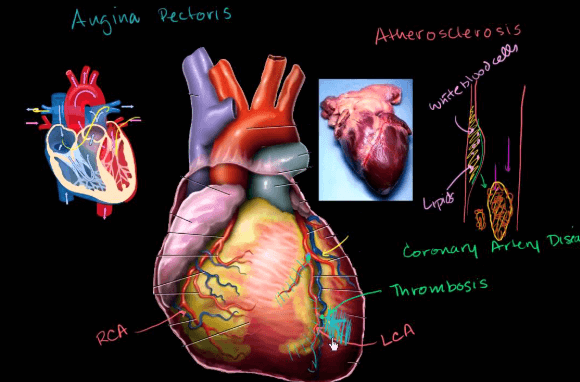Heart Health and Aging: What Changes to Expect?

While the ageing process naturally affects the heart, understanding these changes and their associated risks can help you take preventive measures. As you grow older, being aware of the potential heart conditions and maintaining a healthy lifestyle can significantly reduce the risks.
Ageing is a natural process that brings changes to every system and organ in the body, including the heart. As you grow older, your heart undergoes various transformations, making it more vulnerable to damage. For expert guidance on maintaining a healthy heart across the decades, consult some of the best cardiologists in Delhi at Apollo Hospital Delhi. Continue reading to explore how ageing impacts your heart and the common cardiac conditions that may arise with advancing years.
How Does Ageing Affect Your Heart?
As you grow older, your heart undergoes several physiological changes, which may affect its functioning. Here are some key changes to be aware of:
- Slower Heart Rate: The heart’s natural pacemaker system, responsible for regulating your heartbeat, may develop fibrous tissue and fat deposits. Additionally, the sinoatrial (SA) node—the primary pacemaker—loses some of its cells over time. These changes can cause your heart rate to slow down slightly.
- Increase in Heart Size: In some individuals, the heart, particularly the left ventricle, may increase in size. The thickening of the heart walls may reduce the chamber’s blood-holding capacity, even as the overall size grows. This can also result in a slower filling of the heart.
- Abnormal Heart Rhythms: Ageing can alter the electrical activity of the heart, leading to slight changes in an electrocardiogram (ECG) compared to that of a younger adult. Arrhythmias, like atrial fibrillation, are more common in older adults and may stem from underlying heart conditions.
- Valve Stiffening: Ageing often leads to the accumulation of a pigment called lipofuscin in heart tissues and slight degeneration of muscle cells. The heart valves, which regulate blood flow direction, may thicken and stiffen over time. This can cause heart murmurs, a condition frequently observed in older individuals.
- Stiffening of Arteries and Heart Muscle: The aorta and other arteries may become stiffer, thicker, and less flexible with age, often due to changes in connective tissue. These alterations can elevate blood pressure, making the heart work harder and potentially leading to heart muscle thickening (hypertrophy). A general rise in blood pressure is common in older adults due to these changes.
See also: Health App Monetization Strategies: Balancing Revenue and User Value
Common Heart Problems Associated with Ageing
As you age, the risk of developing certain heart conditions increases. These conditions can often present with similar symptoms, making it important to consult a doctor for a proper diagnosis. Common heart problems in older adults include:
- Angina: Angina refers to chest pain caused by reduced blood flow to the heart muscle. This can occur with exertion and may indicate coronary artery disease.
- Abnormal Heart Rhythms (Arrhythmias): Various types of arrhythmias can develop as a result of changes in heart function with age, leading to irregular heartbeats.
- Atherosclerosis: Atherosclerosis, or hardening of the arteries, is a condition where fatty plaque builds up inside blood vessels, narrowing them and potentially blocking blood flow entirely.
- Congestive Heart Failure: This condition becomes more prevalent with age, particularly in individuals over 75, where the heart is unable to pump blood efficiently, leading to fluid buildup in the body.
- Coronary Artery Disease: Caused primarily by atherosclerosis, coronary artery disease involves the narrowing or blockage of the coronary arteries, which supply blood to the heart.
- High Blood Pressure and Orthostatic Hypotension: High blood pressure (hypertension) and orthostatic hypotension (a sudden drop in blood pressure when standing up) are more common in older adults.
- Heart Valve Diseases: Heart valve problems, such as aortic stenosis (narrowing of the aortic valve), are common in older adults. This can disrupt normal blood flow and lead to heart complications.
- Transient Ischemic Attacks (TIA) or Stroke: A TIA, also known as a mini-stroke, or a full stroke can occur when blood flow to the brain is disrupted, often due to narrowed or blocked arteries.
- Aneurysms: An aneurysm is the abnormal widening or ballooning of an artery caused by a weakened blood vessel wall. Aneurysms can occur in major arteries such as the aorta or in the brain. If an aneurysm bursts, it can cause severe bleeding and can be life-threatening.
Conclusion
Ageing brings about inevitable changes in the heart, making it more vulnerable to various cardiac conditions. While these changes are a natural part of growing older, taking proactive steps to maintain heart health can help minimise risks and improve quality of life. Regular check-ups, a balanced diet, and staying active are essential in managing the heart’s health over time. If you are concerned about your heart health or are experiencing symptoms, seeking advice from the best cardiologists in Delhi at Apollo Hospital Delhi can provide you with expert care and guidance tailored to your needs.
Reference Links
https://medlineplus.gov/ency/article/004006.htm#:~:text=The%20heart%20may%20fill%20more,more%20common%20in%20older%20people.
https://medicine.tufts.edu/news-events/news/what-happens-our-cardiovascular-system-we-age
https://www.webmd.com/healthy-aging/what-happens-to-your-heart-as-you-age
https://www.ahajournals.org/doi/10.1161/01.cir.0000086898.96021.b9
https://www.webmd.com/healthy-aging/ss/slideshow-how-aging-affects-your-heart
https://newsroom.heart.org/news/hearts-and-bodies-change-with-age-heart-disease-treatments-may-need-to-change-too




